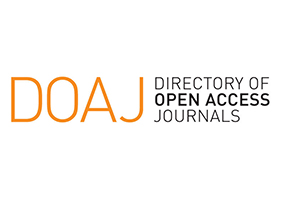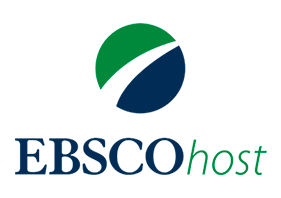Industria 4.0 como política pública: un estudio comparado
DOI:
https://doi.org/10.33304/revinv.v20n1-2025005Resumen
La Industria 4.0 se basa en el uso de tecnologías disruptivas como el IoT y la IA con una conectividad ubicua que permitan aumentar el volumen de producción, la capacidad de diversificar productos e incrementar el flujo de datos para mayor flexibilidad y anticipación ante cambios del mercado. Pese al componente técnico que describe al término, este surge a partir de una estrategia de política pública planteada por el gobierno alemán y algunos autores lo describen como un concepto más bien político. El presente texto tiene como objetivo hacer un análisis comparado de cuatro estrategias de política vinculadas al desarrollo de la Industria 4.0. Los casos elegidos para este fin son: Industrie 4.0 del gobierno alemán; el Plan de Manufactura Inteligente de los Estados Unidos, 2) la estrategia “Sociedad 5.0” del gobierno japonés; y 4) las líneas de acción del gobierno mexicano para impulsar la industria 4.0 en el país.
Descargas
Citas
Acatech. (2013). Securing the future of German manufacturing industry Recommendations for implementing the strategic initiative INDUSTRIE 4.0 Final report of the Industrie 4.0 Working Group. https://www.academia.edu/36867338/Securing_the_future_of_German_manufacturing_industry_Recommendations_for_implementing_the_strategic_initiative_INDUSTRIE_4_0_Final_report_of_the_Industrie_4_0_Working_Group
Amaro Rosales, M. A., & Ortiz-Espinoza, Á. (2023). Planes y programas públicos para el fomento de la Industria 4.0 en México: Las experiencias de Guanajuato y Nuevo León. Entretextos, 15(39), Article 39. https://doi.org/10.59057/iberoleon.20075316.202339675
Basir, R., Qaisar, S., Ali, M., Aldwairi, M., Ashraf, M. I., Mahmood, A., & Gidlund, M. (2019). Fog Computing Enabling Industrial Internet of Things: State-of-the-Art and Research Challenges. Sensors, 19(21), 4807. https://doi.org/10.3390/s19214807
Casalet, M. (2018). La digitalización industrial. Un camino hacia la gobernanza colaborativa. Cepal. https://repositorio.cepal.org/bitstream/handle/11362/44266/1/S1800941_es.pdf
CEFP. (2018, abril 13). Programas Prioritarios 2018-2019. https://www.cefp.gob.mx/publicaciones/nota/2018/notacefp0122018.pdf
CEFP. (2019, abril 30). Programas Prioritarios 2019-2020. https://www.cefp.gob.mx/publicaciones/nota/2019/notacefp0222019.pdf
CEFP. (2020, abril 21). Programas Prioritarios 2020-2021. https://www.cefp.gob.mx/publicaciones/nota/2020/notacefp0282020.pdf
CEFP. (2021, abril 6). Programs prioritarios Pre-Criterios 2021-2022. https://www.cefp.gob.mx/publicaciones/infografias/2021/daip/infdaip0282021.pdf
Cimoli, M., Dosi, G., & Stiglitz, J. E. (Eds.). (2009). Industrial Policy and Development: The Political Economy of Capabilities Accumulation. Oxford University Press. https://academic.oup.com/book/32519
Comisión Europea. (2018, febrero). Case Study Report. The German High-Tech Strategy. https://jiip.eu/mop/wp/wp-content/uploads/2018/09/DE_High-Tech-Strategy_Unger.pdf
Downs, A. (1993). El ciclo de atención a los problemas sociales. Los altibajos de la ecología. En Problemas públicos y agenda de gobierno, México (Luis F. Aguilar Villanueva, pp. 137-156). Miguel Ángel Porrúa.
Eslava, S. (2021, octubre 21). Transformación digital de las industrias [Keynote]. Congreso CLTD. https://www.youtube.com/watch?v=ygnTWlXoT5Q
European Regional Development Fund. (2020). Definition of I4.0 Public Policy Initiatives. https://projects20142020.interregeurope.eu/fileadmin/user_upload/tx_tevprojects/library/file_1606752330.pdf
Foladori, G., & Ortiz-Espinoza, Á. (2021). El otro alcance de la 5G. Observatorio del Desarrollo. Investigación, Reflexión y Análisis, 10, 81-84. https://doi.org/10.35533/od.1028.gf.aoe
Fontaine, G. (2022, mayo 27). Multimethods for Policy Analysis.
Forbes. (2018, septiembre 7). Gobierno alista la Plataforma de Industria 4.0 MX. Forbes México. https://www.forbes.com.mx/gobierno-alista-la-plataforma-de-industria-4-0-mx/
Ford, M. (2016). El auge de los robots. Paidos. Electrónico.
Gobierno de Japón. (2019, enero). ABENOMICS. For future growth, for future generations, and for a future Japan. https://www.japan.go.jp/abenomics/_userdata/abenomics/pdf/1901_abenomics.pdf
Gobierno de Japón. (2021, septiembre 28). Realizing Society 5.0. https://www.japan.go.jp/abenomics/_userdata/abenomics/pdf/society_5.0.pdf
Knutov, A., & Styrin, E. (2020). Use of the Internet of Things in Public Governance for Law Enforcement and Inspection: The Case of Russia. En Beyond Smart and Connected Governments. Sensors and the Internet of Things in the Public Sector. Springer.
Kuo, C.-C., Shyu, J. Z., & Ding, K. (2019). Industrial revitalization via industry 4.0 – A comparative policy analysis among China, Germany and the USA. Global Transitions, 1, 3-14. https://doi.org/10.1016/j.glt.2018.12.001
Micheli Thirion, J. (2022). Fuerzas productivas en la digitalización: El contexto y estructura de la Industria 4.0. En Oportunidades y retos para la adopción de la Industria 4.0 en México (pp. 23-36). UNAM - PyV Editores.
Nosalska, K., Piątek, Z., Mazurek, G., & Rządca, R. (2019). Industry 4.0: Coherent definition framework with technological and organizational interdependencies. Journal of Manufacturing Technology Management, ahead-of-print, 837-862. https://doi.org/10.1108/JMTM-08-2018-0238
Oficina del Gabinete. (2020, febrero 19). Society 5.0. https://www8.cao.go.jp/cstp/english/society5_0/index.html
Ortiz-Espinoza, A. (2022). Desafíos para la medición de la Industria 4.0: Una comparación de índices. Observatorio del Desarrollo, 11(32), 64-68. https://doi.org/10.35533/od.1132.aoe
Oztemel, E., & Gursev, S. (2020). Literature review of Industry 4.0 and related technologies. Journal of Intelligent Manufacturing, 31(1), 127-182. https://doi.org/10.1007/s10845-018-1433-8
Porter, M. E., & Heppelmann, J. E. (2014, noviembre 1). How Smart, Connected Products Are Transforming Competition. Harvard Business Review. https://hbr.org/2014/11/how-smart-connected-products-are-transforming-competition
Qureshi, Z. (2017). Tecnología avanzada, pero crecimiento más lento y desigual: Paradojas y políticas. https://www.bbvaopenmind.com/articulos/tecnologia-avanzada-pero-crecimiento-mas-lento-y-desigual-paradojas-y-politicas/
Rothwell, R., & Zegveld, W. (1981). Industrial Innovation and Public Policy: Preparing for the 1980s and the 1990s. https://scholar.google.com/scholar_lookuptitle=Industrial%20Innovation%20and%20Public%20Policy%3A%20Preparing%20for%20the%201980s%20and%20the%201990s&publication_year=1981&author=R.%20Rothwell&author=W.%20Zegveld
Ruiz, A. (2021). Los factores externos de la política pública, un análisis comparado desde el establecimiento de la agenda. Flacso.
Schütze, A., Helwig, N., & Schneider, T. (2018). Sensors 4.0 – smart sensors and measurement technology enable Industry 4.0. Journal of Sensors and Sensor Systems, 7(1), 359-371. https://doi.org/10.5194/jsss-7-359-2018
Schwab, K. (2017). La cuarta revolución industrial. Debate.
SE. (2016a, abril). Crafting The Future: A Roadmap for Industry 4.0 in Mexico. https://amiti.org.mx/wp-content/uploads/2018/01/Crafting-the-future-10-agosto-2016.pdf
SE. (2016b, mayo 23). Programa para el Desarrollo de la Industria de Software y la Innovación PROSOFT (presentación). https://www.gob.mx/cms/uploads/attachment/file/490934/PROSOFT_VF.pdf
Soltovski, R., Resende, L. M. M. de, Pontes, J., Yoshino, R. T., & Silva, L. B. P. da. (2020). Um estudo quantitativo sobre os riscos da Indústria 4.0 no contexto industrial: Uma revisão sistemática da literatura. Revista Gestão e Desenvolvimento, 17(3), Article 3. https://doi.org/10.25112/rgd.v17i3.2245
Volpe Rodrigues, T., dos Santos Filho, V. H., Pontes, J., Martins de Resende, L. M., & Tadashi Yoshino, R. (2020). Government Initiatives 4.0: A Comparison Between Industrial Innovation Policies for Industry 4.0.
Yang, H., Kim, S. Y., & Yim, S. (2019). A Case Study of the Korean Government’s Preparation for the Fourth Industrial Revolution: Public Program to Support Business Model Innovation. Journal of Open Innovation: Technology, Market, and Complexity, 5(2), Article 2. https://doi.org/10.3390/joitmc5020035
Descargas
Publicado
Cómo citar
Número
Sección
Licencia

Esta obra está bajo una licencia internacional Creative Commons Atribución-NoComercial-CompartirIgual 4.0.
Los autores conservan los derechos de autor y ceden a la revista el derecho de la primera publicación, con el trabajo registrado bajo la Licencia Creative Commons Atribución-NoComercial-CompartirIgual 4.0 Internacional,que permite a terceros utilizar lo publicado siempre que mencionen la autoría del trabajo y a la primera publicación en I+D Revista de Investigaciones. Los autores pueden realizar otros acuerdos contractuales independientes y adicionales para la distribución no exclusiva de la versión del artículo publicado en esta revista (p. ej., incluirlo en un repositorio institucional o publicarlo en un libro) siempre que indiquen claramente que el trabajo se publicó por primera vez en I+D Revista de Investigaciones.










